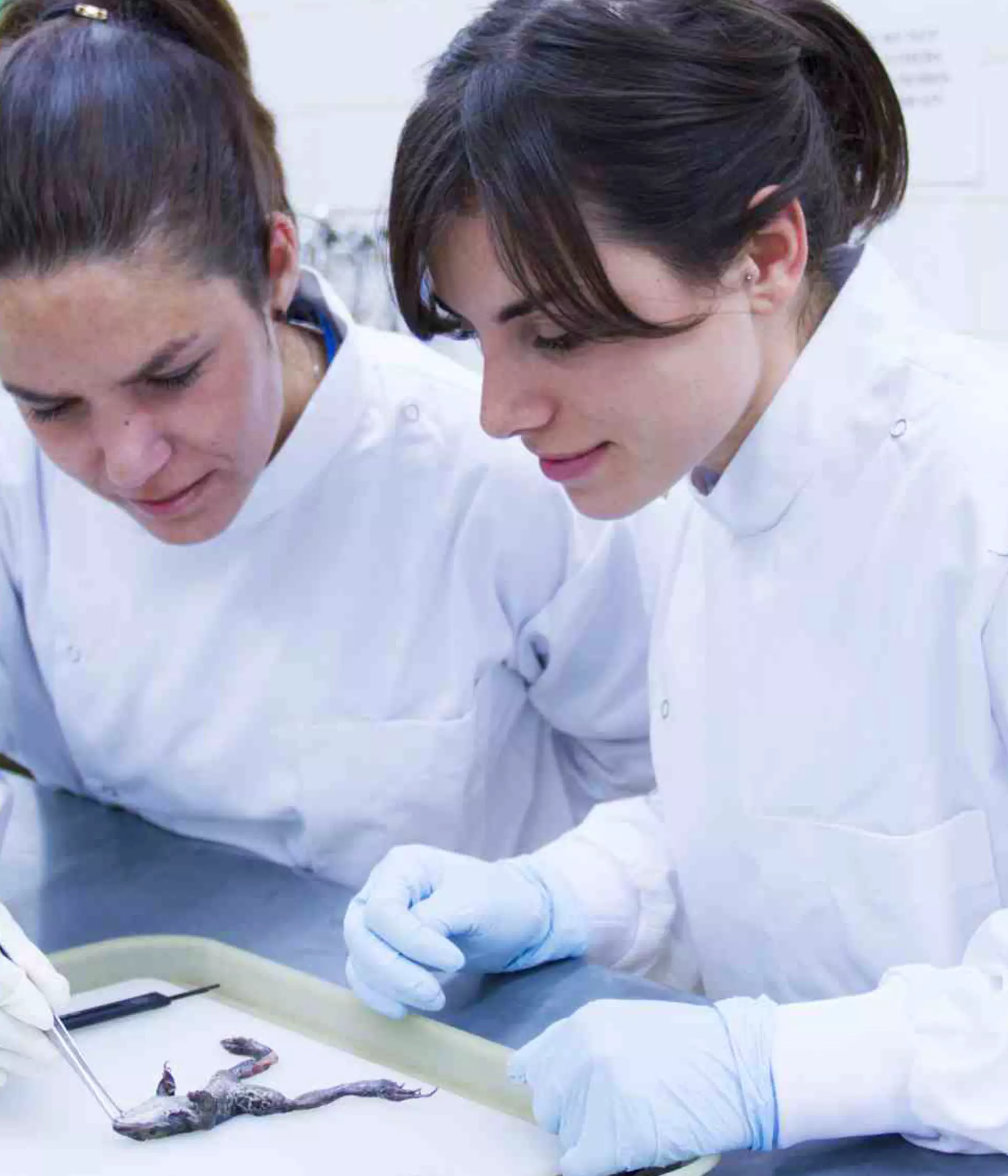Several PhD studentships are available at the Institute of Zoology each year. Most studentships are funded by UK Research Councils but some come from other funders including overseas universities and charitable foundations.
As a Research England-funded research institution, the IoZ cannot award postgraduate degrees in its own right. All postgraduate students are co-registered at a University department and have a University supervisor in addition to their IoZ supervisors.
PhD projects are registered at the University that best serves the needs of the studentship. However, the Institute is formally linked with the Research Department of Genetics, Evolution and Environment, University College London, and many students will register in this department. All PhD students are entitled to take training courses and other benefits offered by the University of registration.
The IoZ provides additional postgraduate research training, close contact with supervisors, transferable skills development, small research discussion groups and an annual student conference. There are also opportunities to mix with leading researchers and students in other London biology departments through the Centre for Ecology and Evolution (CEE).
Guidelines for finding a PhD at IoZ
The Institute of Zoology receives many inquiries from prospective PhD students. There are two routes to obtain a PhD here.
Firstly we have advertised posts where we seek suitable candidates to apply for funded positions in a particular topic:
The ZSL Institute of Zoology is a partner organisation with a number of NERC Doctoral Training Programmes (DTPs) and Centres for Doctoral Training (CDTs).
For more information on the programmes (with details of available PhD studentships), please refer to the following sites:
- London NERC Doctoral Training Partnership
- Science & Solutions to a Changing Planet (SSCP) DTP
- Centre for Doctoral Training in Quantitative and Modelling Skills in Ecology and Evolution (QMEE)
- Oxford DTP in Environmental Research
- Science of the Environment: Natural and Anthropogenic pRocesses, Impacts and Opportunities (SCENARIO) DTP
- Advance Research & Innovation in the Environmental Sciences (ARIES) DTP
- Centre for Doctoral Training in Sustainable Management of UK Marine Resources (CDT SuMMeR)
We are also interested in discussing PhD opportunities with students who have their own funding arrangements.
Alternatively, there are a number of unadvertised PhD studentships developed through the student’s initiative where the student is involved in developing the research project and locating funding.
Many of the studentship requests we receive, however, are not focussed, and subsequently do not attract much interest from IOZ staff - even those from students with a good academic record.
As a general rule, the better-prepared candidates fare much better in gaining PhD places. With this in mind, we have prepared the following advice for potential students to improve their chances of success.
Checklist for unadvertised PhD studentships
You will need at least a good undergraduate degree (upper second or first) in biology or closely related subject.
It also helps to have a relevant MSc. Masters degrees provide good experience in research and are therefore seen as natural stepping stone to a PhD.
In addition, some funding sources require research experience, such as a Masters degree, that cannot be gained during an undergraduate degree.
A PhD requires three years of dedication to a single topic, so it is important that the student take on a subject in which they are very interested.
Given the level of competition for getting studentships, you will often be expected to get some experience in your area of interest and have a sound plan of research prior to applying for your PhD.
Funds are always limited and money is often the key factor that constrains research. If you have already obtained funding, you will attract a lot more interest from potential supervisors than if you have not.
If you haven’t obtained funding yet, it helps if you have identified sources of funding and are willing and able to take a leading role in applying for those funds. The funds also need to cover you and the costs of your research for the full three years of the studentship.
If you have a strong academic record, a good idea and the right background for your research and have identified or obtained your sources of funding, then you may well be successful.
How to apply for an unadvertised PhD at IoZ
Check our website and identify one or two members of staff who could potentially act as supervisors for your PhD. Approach those individuals directly; attaching your CV with an email stating your research interests, why you have approached them and suggesting sources for funding.
If you are approaching more than one person, let everyone know who you have approached. This will help everyone to agree on a common strategy for your studentship.
